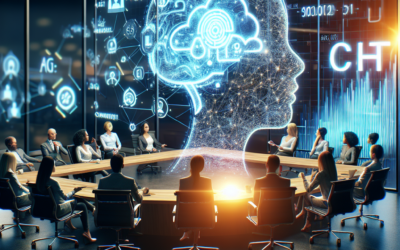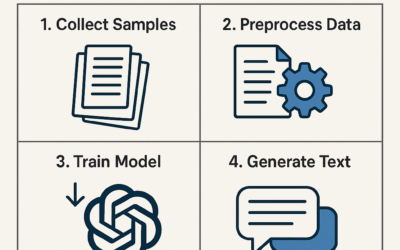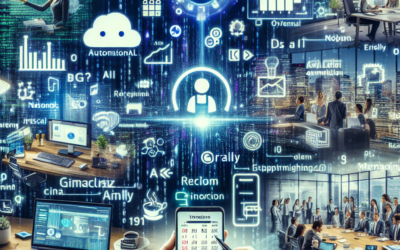The workplace landscape is undergoing a dramatic transformation as artificial intelligence reshapes traditional career paths and creates entirely new opportunities. Recent research from Goldman Sachs suggests AI could replace the equivalent of 300 million full-time jobs, marking one of the most significant technological shifts in human history.
Reshaping the Job Market
While headlines often focus on job displacement, the reality is more nuanced. The World Economic Forum projects that digital expansion will generate 19 million new positions by 2030, with AI and data processing accounting for 11 million of these roles. Industries experiencing the most substantial changes include manufacturing, technology, finance, and healthcare, where AI is revolutionizing everything from production processes to patient care.
The New Skills Landscape
Technical expertise has become increasingly crucial in today’s job market. With 86% of executives expecting AI to transform their businesses by 2030, skills in machine learning, data analysis, and cybersecurity are in high demand. However, technical abilities alone aren’t enough.
The human element remains irreplaceable. Soft skills such as adaptability, critical thinking, creativity, and emotional intelligence are becoming more valuable than ever. These uniquely human capabilities enable workers to navigate complex situations and drive innovation beyond what AI can achieve.
Emerging Career Opportunities
The AI revolution is creating entirely new career paths. Roles such as AI Ethics Specialists, Integration Specialists, and Human-AI Interaction Designers are emerging rapidly. These positions combine technical knowledge with ethical considerations and human-centered design principles.
Preparing for the Future
Success in this evolving landscape requires a commitment to continuous learning. With 39% of workers’ key skills expected to change by 2030, professionals must embrace ongoing education and development. This might involve:
– Pursuing specialized certifications in AI and data analytics
– Developing cross-functional expertise
– Strengthening soft skills through practical experience
– Staying informed about industry trends and technological advances
The Challenge Ahead
While AI presents tremendous opportunities for innovation and efficiency, it also raises important questions about workforce adaptation and economic inequality. The key lies in balancing technological advancement with human-centered approaches to work and skill development.
Organizations and individuals who proactively address these challenges through strategic upskilling and reskilling initiatives will be best positioned to thrive in the AI-driven future. The goal isn’t to compete with AI but to leverage it while developing uniquely human capabilities that complement technological advancement.
This transformation represents not just a challenge but an opportunity to reshape how we work, learn, and grow professionally. The future belongs to those who can adapt and evolve alongside these technological changes while maintaining their distinctive human advantages.





0 Comments